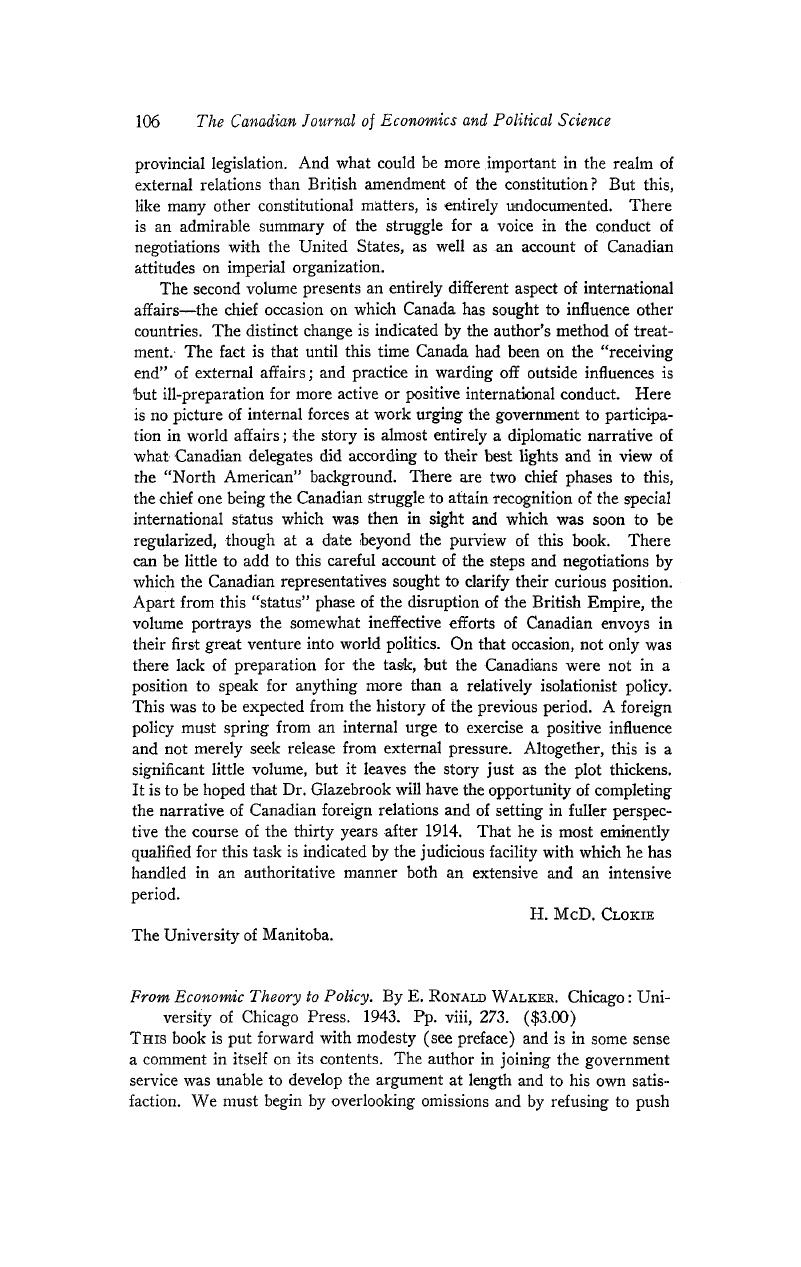No CrossRef data available.
Article contents
From Economic Theory to Policy. By E. Ronald Walker. Chicago: University of Chicago Press. 1943. Pp. viii, 273. ($3.00)
Published online by Cambridge University Press: 07 November 2014
Abstract

- Type
- Reviews of Books
- Information
- Canadian Journal of Economics and Political Science/Revue canadienne de economiques et science politique , Volume 10 , Issue 1 , February 1944 , pp. 106 - 109
- Copyright
- Copyright © Canadian Political Science Association 1944
References
1 “You are at the critical age,” Brisbane went on. “In a man's early years enthusiasm and general interest help him, and if he has moderate ability he is likely to do well enough. Around thirty he is in danger of becoming too seriously interested in something and thereby becoming heavy and monotonous.”
He pointed to a row of shelves built into his motor, and filled. “Do you see those books?” he asked. “It is an encyclopedia; there are thirty volumes; I began at the left, have read straight through fifteen volumes, and shall read straight through the rest. There is a little on every subject under the sun. Young man, if you would succeed in journalism never lose your …superficiality.”
“It was a sound warning. In journalism men are likely to worsen as they grow older, and as they lose excitement. There are not many pen-men who, like Voltaire, are most effective in old age.” From The Changing Years—Reminiscences of Norman Hapgood (New York, 1930), p. 122.Google Scholar
“The greatest danger on our horizon, the most serious menace to all our higher values is that we seem to be moving toward a new position of stability” ( Knight, F. H., “Theology and Education,” American Journal of Sociology, 03, 1939, p. 674).Google Scholar
2 Those studies can make a man opinionated and contentious; can they make him wise? They exhaust the mind by a certain jejune and barren subtlety, without fertilizing or inspiring it. By their stammering and by the stains of their impure style they disfigure theology which had been enriched and adorned by the eloquence of the ancients. They involve everything whilst trying to resolve everything” ( Huizinga, J., Erasmus, New York, 1924, p. 27).Google Scholar
3 The Problem of Unemployment (Toronto, 1943).Google Scholar


